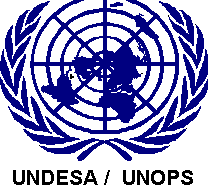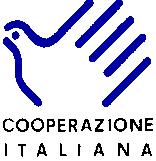|
International Working Group on
Training and Researchfor Human Development
Report of the Mid-Term Review Meeting
(Hammamet, 31 March and 1 April 2000) Although there now is general international agreement about the human development model and its objectives, there is also a clear recognition of the difficulties in implementing it. One pressing need is for innovation and cultural change to which development cooperation can contribute. This necessitates, inter alia:
§ Research and development of working tools and reproducible actions which are effectively capable of reaching the objectives established by the World Summits;
§ Information campaigns and education initiatives for managers and personnel of public and private structures which have an essential role to play in social development.
The UNOPS Edinfodec Project on behalf of the United Nations Department for Economic and Social Affairs has been supporting the activities of an international working group on the subject of research and training for human development made up of representatives of. working groups that were formed in: Algeria, Canada, Colombia, Cuba, France, Italy, Morocco, Mozambique and Tunisia. These groups have been led by members of University departments and have brought together different institutions (universities, research centres, NGOs, professionals and managers of social services and public institutions, local administrators, the actors of decentralised co-operation, etc) implicated in social development and development co-operation with the objective of verifying the pertinence of an international initiative of research and training for human development. and contributing to its elaboration.
The international working group met in Hammamet, Tunisia from 31 March to 1 April 2000 to share the results of the work carried out in different national settings. They have outlined a proposal for an initiative based on an international network of research and training institutions, on one hand, and of experiences and practices of human development on the other.
The group underlined the centrality of action research as a guiding methodology for research and innovation, linked to periods of work/study/training or “stages” as a basic training method. In particular, action research and the creation of training laboratories create the condition for building a common pool of knowledge using different skills, capacities and forms of knowledge coming from diverse cultural and developmental contexts and experiences.
Indeed, building a global culture of human development does not mean transferring knowledge from those who have it to those who do not. It is a process of constructing that knowledge as a common effort, making available the skills, capacities and knowledge that exist in different institutions (academic and non), experiences, countries and communities for a common endeavour and in a spirit of co-development and interdependency.
The ultimate goal is to launch a powerful international initiative capable of multiplying the number and quality of workers, administrators, managers and facilitators in the development process and to nurture a culture of human development in accordance with the principles of the Charter of Copenhagen. |
|


